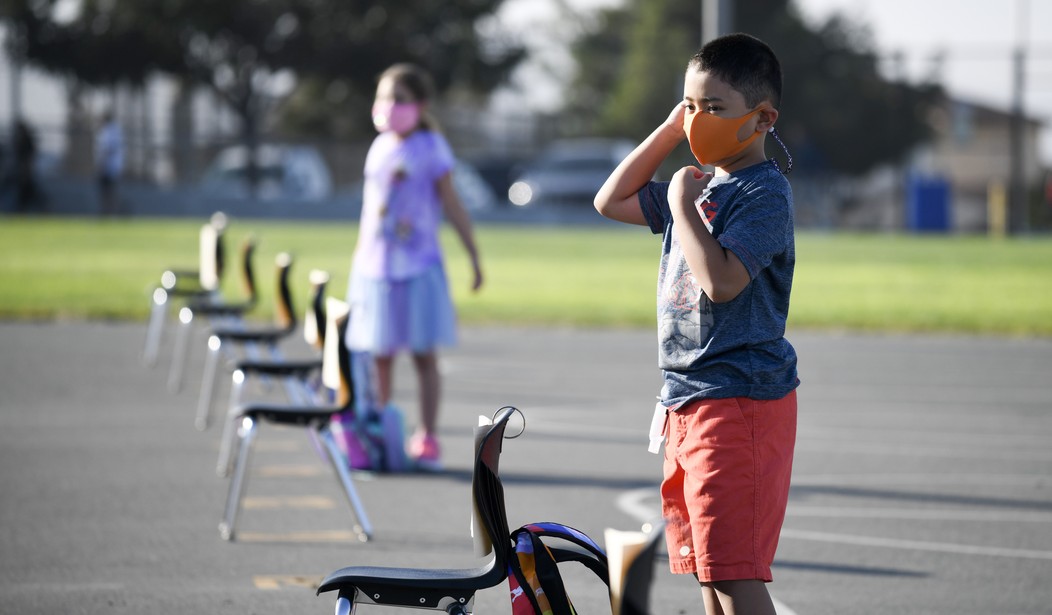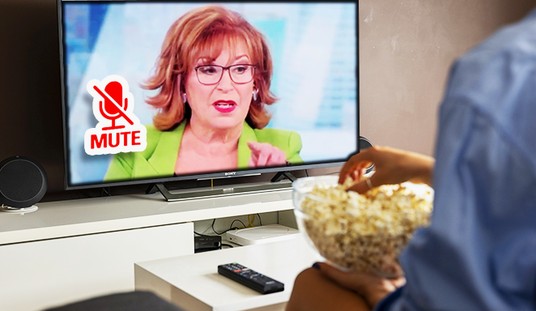On Thursday, Pfizer and BioNTech asked the Food and Drug Administration (FDA) to approve their vaccine for 5-11 year olds. As Leah covered, the companies last month had announced that there were "positive topline results" for vaccine trials when it comes to this age group.
With new cases in children in the U.S. continuing to be at a high level, this submission is an important step in our ongoing effort against #COVID19. pic.twitter.com/5QCRwfYbR5
— Pfizer Inc. (@pfizer) October 7, 2021
Emergency uses of the vaccine have not been approved or licensed by @US_FDA but have been authorized to prevent COVID-19 in ages 12+. See Fact Sheet: https://t.co/6DZlsWEi2O
— Pfizer Inc. (@pfizer) October 7, 2021
As Sharon LaFraniere and Noah Weiland reported for The New York Times:
WASHINGTON — Pfizer and BioNTech asked federal regulators on Thursday to authorize emergency use of their coronavirus vaccine for children ages 5 to 11, a move that could help protect more than 28 million people in the United States.
The companies say they are submitting data supporting the change to the Food and Drug Administration. The agency has promised to move quickly on the request and has tentatively scheduled a meeting on Oct. 26 to consider it. A ruling is expected between Halloween and Thanksgiving.
They also wrote about the discussion of what could affect approval as well as how the vaccine would be different for this age group than others:
Dr. Janet Woodcock, the acting F.D.A. commissioner, said last week that children might require “a different dosage or formulation from that used in an older pediatric population or adults.”
Pfizer has proposed giving children one-third of the adult dosage. That might require adding more diluent to each injection or using a different vial or syringe. The company was expected to describe the method it intended to use in its submission to the Food and Drug Administration.
Regulators will have to examine the purity and stability of mass-manufactured doses of the vaccine and determine that it matches the quality and potency of doses given to children in clinical trials. A pediatric dose will also most likely require new labeling, with special codes that would allow the Centers for Disease Control and Prevention to track specific lots in case of reports of serious side effects.
Recommended
The report also discussed hesitation from parents, while emphasizing those who have questions should talk to their pediatricians as the best resource:
Public health experts have said that the agency’s review of a Pfizer pediatric dose would be closely scrutinized. According to a recent survey conducted by the Kaiser Family Foundation, roughly a third of parents of children between ages 5 and 11 said they would wait and see before allowing their children to receive such a shot.
Dr. Walt A. Orenstein, an epidemiologist at Emory University and a former director of the U.S. immunization program, said that given the competing pressures on the Food and Drug Administration to make vaccine decisions quickly but carefully, public discussion was essential.
He said many parents were wavering between fear of Covid-19 and fear of side effects of a pediatric vaccine. If they were less worried about the consequences of coronavirus infection, he said, safety would be their top priority. If they were more worried, the vaccine’s effectiveness would matter more. As with other vaccines, Dr. Orenstein said, pediatricians would play a critical role in easing parental anxiety.
There was also a significant note about the vaccine trials:
Pfizer’s clinical trial for children was not intended to draw meaningful conclusions about the vaccine’s ability to prevent disease or hospitalizations. Instead, researchers looked at antibody levels, comparing them with levels in adults that had conferred high protection. Regulators are expected to compare those immune responses to vaccine efficacy data in the adult population.
...
A lower dose of the vaccine for children could alleviate those concerns.
Officials in a number of countries have recommended a single dose of the Pfizer-BioNTech vaccine for children ages 12 and older, which would provide partial protection from the virus, but without the potential effects occasionally observed after two doses.
When it comes to the Kaiser Family Foundaton survey cited, 34 percent of parents of children 5-11 said "once there is a COVID-19 vaccine authorized and available for your child’s age group" they will get them vaccinated "right away." Close behind that selection includes 32 percent of parents who say they will "wait and see." Just 7 percent say "only if required," while almost a quarter, at 24 percent, say "definitely not."
A September 13-19 update to a Gallup poll panel found that 55 percent of parents with children under 12 would get their child vaccinated if it were available.
A Gallup write-up from Megan Brenan called the 55 percent "steady" and noted that "the update to Gallup's probability-based COVID-19 web panel survey ended one day before Pfizer and BioNTech announced they would seek emergency use authorization from the U.S. Food and Drug Administration for their COVID-19 vaccine for children aged 5 to 11."
Brenan also mentioned that "survey data suggest that getting young children immunized may be a tougher challenge than getting parents and older children immunized."
It's been quite a busy few days in vaccine news. As Madeline reported earlier today, Johnson and Johnson is seeking FDA approval for a booster shot.























Join the conversation as a VIP Member